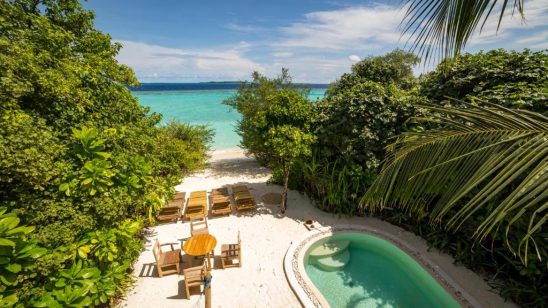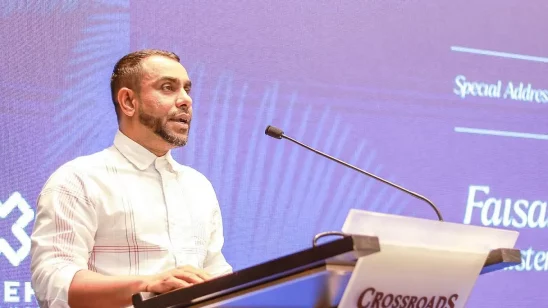
Maldives’ economy safe from bankruptcy as tourism grows, says Presidential Advisor
The Maldives’ economy will not face bankruptcy as long as the global tourism industry continues to expand, according to Presidential Tourism Advisor Mohamed Khaleel. Speaking at the GM Forum, organised by Hotelier Maldives at Crossroads today, Khaleel addressed concerns about the nation’s financial stability, including the risk of defaulting on foreign debt.
Khaleel acknowledged that questions about the Maldives’ economic future have been raised by international media, but he assured that the country is not at risk.
“Two days ago, I was contacted by a foreign media outlet asking about potential bankruptcy. I told them that the Maldives will not default on its loans, and that our tourism industry will remain sustainable,” Khaleel said during the forum. He pointed to the nation’s resilience during the COVID-19 pandemic as evidence of its ability to withstand economic challenges.
Khaleel emphasised that the Maldivian government is actively working to stabilistourimse the economy and boost investor confidence by implementing relevant laws. He highlighted several key measures aimed at strengthening the economy, including efforts to reduce recurrent expenditure and cut health sector waste.
He also noted that the resorts and tourism industry are prepared to cooperate with the government to address the ongoing foreign exchange challenges. “There is no issue in paying taxes like withholding tax in dollars. The tourism industry is ready to do that. As the government has decided, the foreign exchange issue will be resolved when pensions for those paid in dollars are also issued in dollars,” he said.
Further discussing the government’s efforts, Khaleel called for stronger promotion of the Maldives as a tourist destination, stressing that destination marketing should be viewed as an investment. He explained that effective marketing could increase the daily revenue earned per room, benefiting both the tourism sector and the government.
“Right now, the average occupancy rate in the Maldives is 50%. If we can improve our marketing and raise occupancy to 60%, profits could increase by 10%,” Khaleel noted. He also mentioned that the current low occupancy rates are leading to a reduction in the prices of resorts and hotels, thereby decreasing overall revenue.
Khaleel pointed to the post-COVID expansion of the Maldives into new tourism markets, including the United States, as a key success. “Before the pandemic, the U.S. was not a major market for Maldivian tourism. Now, it’s one of the most visited markets,” he said, underscoring the importance of continued marketing efforts to attract high-spending tourists.
In closing, Khaleel reiterated the government’s commitment to promoting the Maldives as a top global destination and maintaining the country’s economic stability through the growth of its tourism industry.






